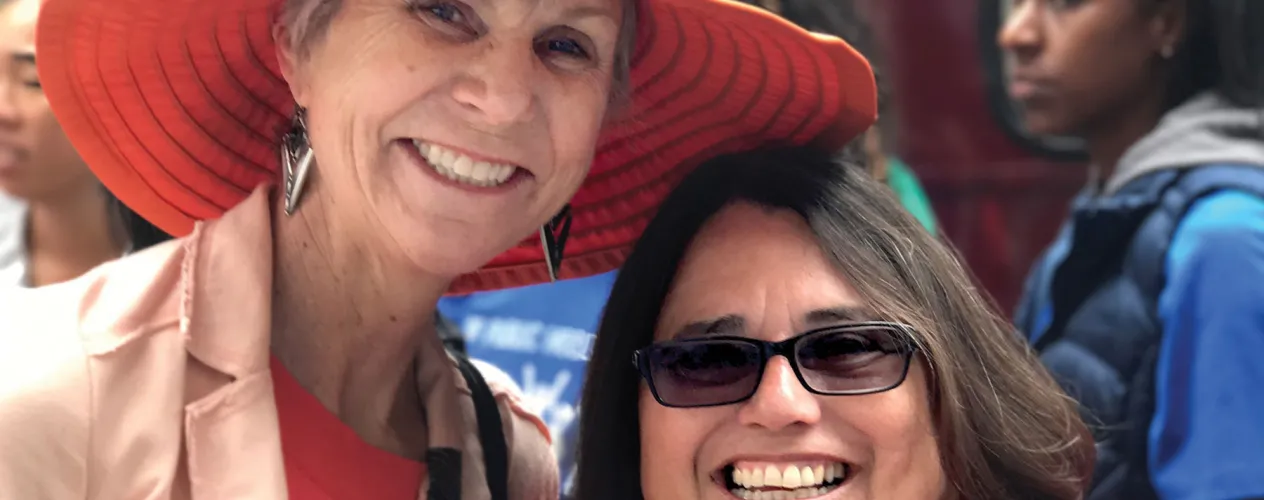Family Focused
As director of the San Francisco health department’s Maternal, Child and Adolescent Health Section, alum Mary Hansell sets at-risk groups on a healthy course.

AS A HOSPITAL NURSE AT THE OUTSET OF HER CAREER, Mary Hansell (MPH ’83, DrPH ’89) was quickly drawn to the obstetrics unit. “It was exciting to me to work with people as they prepared to become parents, feeling like I could make a difference in supporting them,” she says. That was when Hansell also began to appreciate the importance of prevention and addressing societal factors to ensure planned pregnancies, appropriate prenatal care, healthy births and positive life trajectories for parents and children. Two years later she applied to UCLA’s Fielding School. “The school was like a magnet for me,” Hansell says. “I learned so much from my professors. It was a great fit.”
Today Hansell is protecting and promoting the health of tens of thousands of women of childbearing age, infants, children and adolescents as director of the Maternal, Child and Adolescent Health (MCAH) Section of the San Francisco Department of Public Health. Since taking the position in 2011, Hansell has also made it a point to bring in Fielding School MPH students as interns. “This is my way of giving back to an institution that I appreciate for what it gave me years ago,” she says.
Hansell heads a 190-person team that is involved in community assessment, planning, evaluation, outreach, advocacy, education, training and policy development targeting members of the population who are at increased risk for adverse health outcomes because of financial, language, or cultural barriers, or mental or physical disabilities. Core programs bring direct services, including through home visits to pregnant women and families with infants and toddlers, with a focus on providing support to low-income populations. In addition to the core programs, Hansell’s group has implemented innovative programs such as a multidisciplinary effort, in partnership with the nonprofit early-childhood advocacy organization First 5 San Francisco, to foster health-promoting environments at approximately 100 childcare sites. MCAH has also increasingly focused on policy development, contributing to changes in San Francisco that have included expanded family and medical leave (becoming the nation’s first city to require employers to provide six weeks of fully paid leave for new parents) and lactation accommodations in the workplace.
Among Hansell’s biggest concerns are the health disparities that disproportionately affect low-income and minority populations. “Overall our statistics for the San Francisco population tend to look very good, but we can’t just be content with overall numbers,” she says. “We always have to look at the subpopulations, and then work very strategically to promote health equity.”
While she is quick to point out that much work remains, Hansell has seen positive results from such efforts. For example, a recent drive to ensure access to family planning and reproductive health services for young African-American women has significantly reduced the rates of preterm African-American infants in San Francisco, the group with the highest rates in the city. “Seeing positive changes in areas we’ve been focusing on gives me incredible pleasure,” Hansell says. “I came to this position to work on things that matter to me, and it’s great to know that what you’re doing is having an impact.”